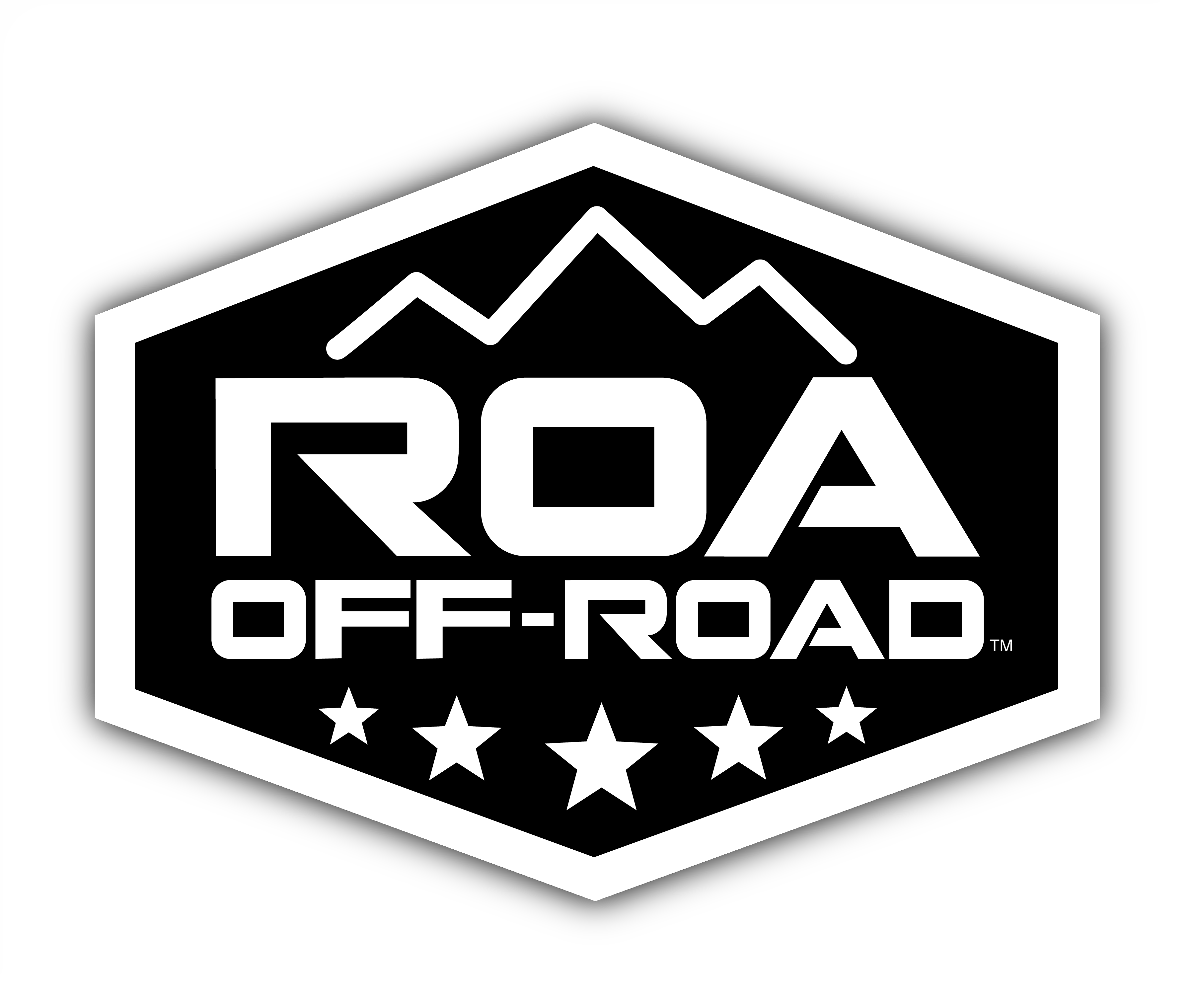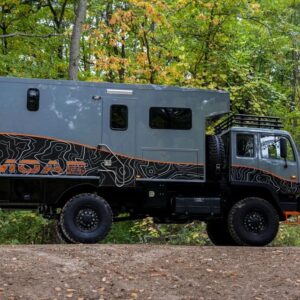The Moab Project

The Moab Project
MOAB builds extreme off-road, off-grid motorhomes in Wakarusa, Indiana, leveraging 100+ years of combined coachbuilding experience to prioritize what matters behind the walls: structure, systems, and serviceability. Their habitats are self-supporting welded box frames, secured with huck-fastened joints, clad in extra-thick fiberglass with no wood, and mounted on a floating platform so the chassis can flex without stressing the cabin. Power comes from a 48-volt architecture with dual 3,000W inverters and app-enabled Victron controls, enabling long, generator-free runtime and fast recharge—designed for real expedition use, not just curb appeal.

Models
MOAB currently offers two models. Juggernaut rides on the ACELA Monterra 4×4 (former U.S. Army platform) with full-time AWD, CTIS, and heavy-duty running gear—built to push deep into rough country. Trailblazer carries the same MOAB habitat construction and 48V electrical tech on a Ford F-550 4×4 platform, pairing a more conventional chassis with the brand’s expedition-grade shell and systems. Both share the residential interior approach (true dry bath, solid-surface galley) and the service-friendly design MOAB is known for.

Support
Support is grounded in practical design and direct access. Tanks, electrical components, and major systems are accessible behind exterior doors, the habitat can be unbolted from the chassis for major service, and owners get modern monitoring via Victron touchscreen plus Bluetooth/Wi-Fi app. MOAB publishes detailed spec pages and a downloadable brochure, and you can reach the factory (Recreational Specialties, Wakarusa, IN) directly for questions, options, or service coordination.
The Moab Project
MOAB builds extreme off-road, off-grid motorhomes in Wakarusa, Indiana, leveraging 100+ years of combined coachbuilding experience to prioritize what matters behind the walls: structure, systems, and serviceability. Their habitats are self-supporting welded box frames, secured with huck-fastened joints, clad in extra-thick fiberglass with no wood, and mounted on a floating platform so the chassis can flex without stressing the cabin. Power comes from a 48-volt architecture with dual 3,000W inverters and app-enabled Victron controls, enabling long, generator-free runtime and fast recharge—designed for real expedition use, not just curb appeal.
Models
MOAB currently offers two models. Juggernaut rides on the ACELA Monterra 4×4 (former U.S. Army platform) with full-time AWD, CTIS, and heavy-duty running gear—built to push deep into rough country. Trailblazer carries the same MOAB habitat construction and 48V electrical tech on a Ford F-550 4×4 platform, pairing a more conventional chassis with the brand’s expedition-grade shell and systems. Both share the residential interior approach (true dry bath, solid-surface galley) and the service-friendly design MOAB is known for.
Support
Support is grounded in practical design and direct access. Tanks, electrical components, and major systems are accessible behind exterior doors, the habitat can be unbolted from the chassis for major service, and owners get modern monitoring via Victron touchscreen plus Bluetooth/Wi-Fi app. MOAB publishes detailed spec pages and a downloadable brochure, and you can reach the factory (Recreational Specialties, Wakarusa, IN) directly for questions, options, or service coordination.
Models

